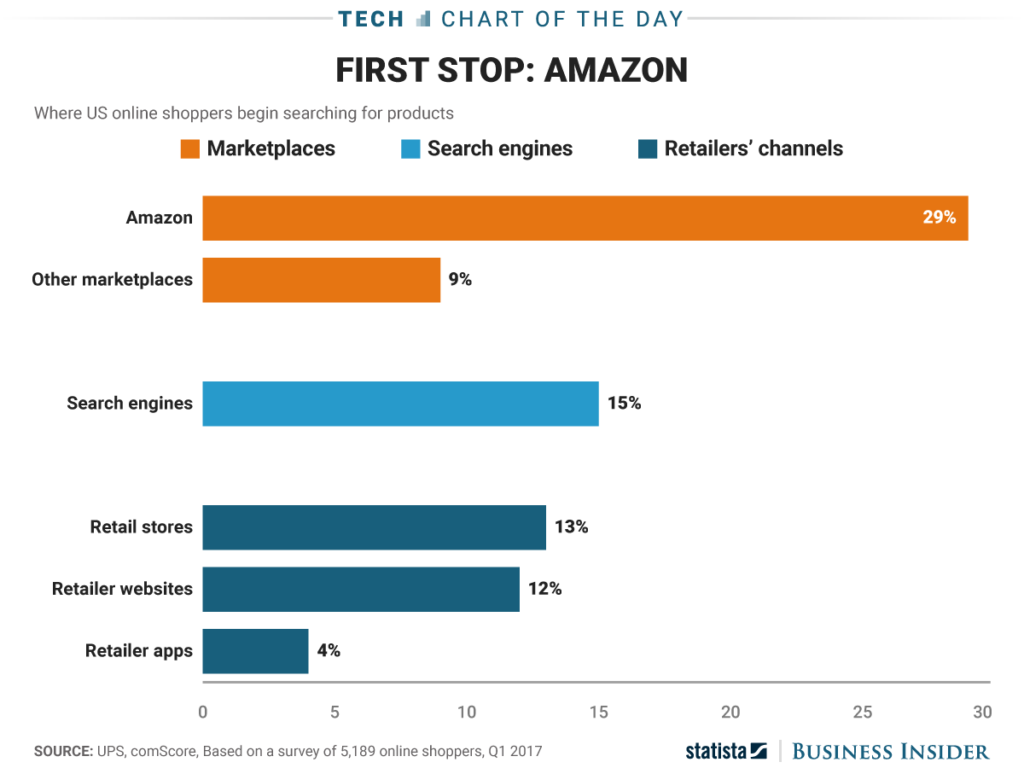The €2.4B fine on Google handed down by the European Commission stemmed originally from complaints by shopping-comparison sites that changes in Google Shopping that the company introduced in 2008 had amounted to an abuse of its dominance in search. But 2008 was a long time ago in this racket, and shopping-comparison sites have become relatively small beer because Internet users researching possible purchases don’t start with a search engine any more. (Many of them start with Amazon, for example.)
This is deployed (by the Internet giants) as an argument for the futility of trying to regulate behaviour by dominant firms: the legal process of investigation takes so long that the eventual ruling is so out of date as to be meaningless.
This is a convenient argument, but the conclusion isn’t that we shouldn’t regulate these monsters. Nevertheless it is interesting to see how the product search scene has changed over time, as this chart shows.
The obvious solution to the time-lag problem is — as the Financial Times reported on January 3 — for regulators to have “powers to impose so-called “interim measures” that would order companies to stop suspected anti-competitive behaviour before a formal finding of wrongdoing had been reached.” At the moment the European Commission does have powers to impose such measures, but only if it can prove that a company is causing “irrevocable harm” — a pretty high threshold. The solution: lower the threshold.

